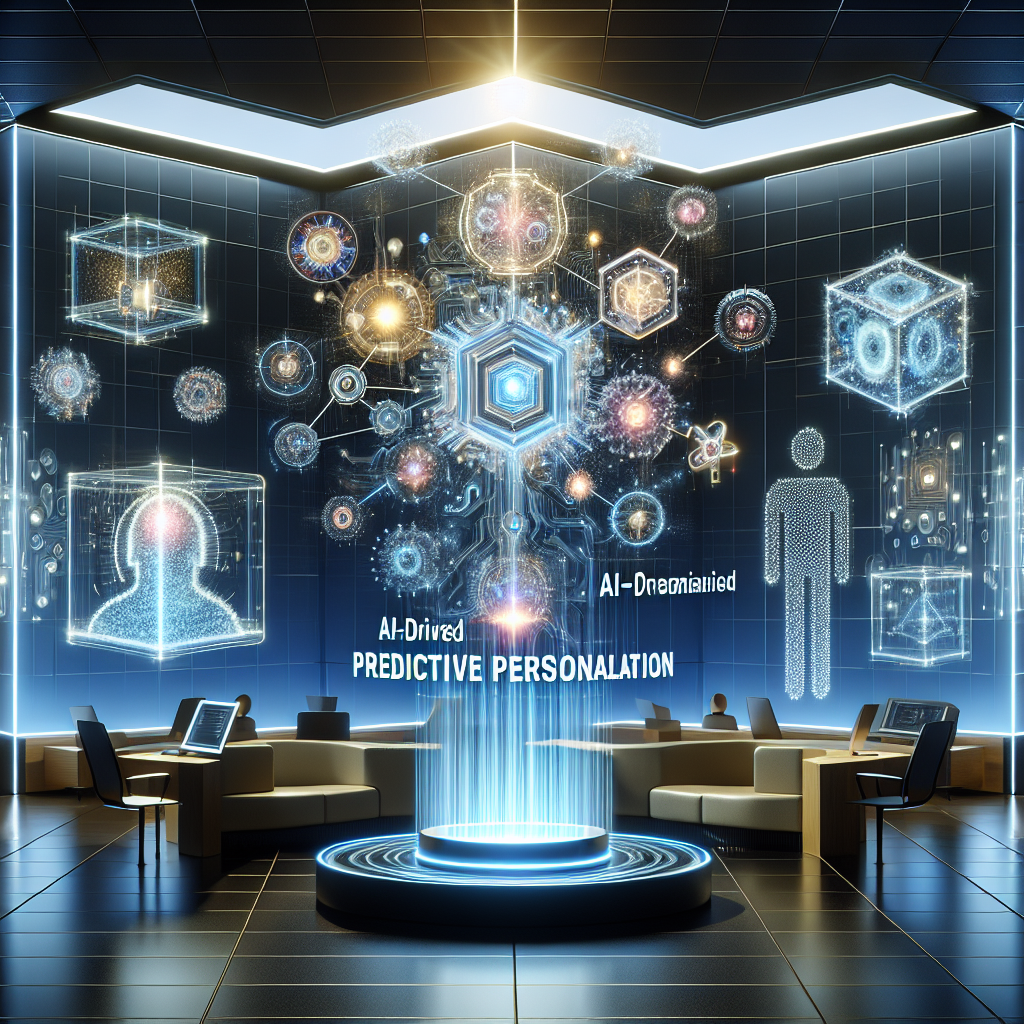AI-Driven Predictive Personalization: Revolutionizing Customer Interaction Models in 2025


AI-Driven Predictive Personalization: Revolutionizing Customer Interaction Models in 2025
\nIn the rapidly evolving world of customer experience, AI-driven predictive personalization has emerged as a game-changer. As we move through 2025, businesses across industries are leveraging this technology to transform their customer interaction models. This blog post delves into how AI-driven predictive personalization is shaping the future of customer engagement, supported by relevant examples, case studies, and the latest statistics.
\n\nUnderstanding AI-Driven Predictive Personalization
\nPredictive personalization, powered by Artificial Intelligence (AI), utilizes machine learning algorithms and data analytics to anticipate customer preferences and behaviors. This approach not only enhances customer experience but also boosts business efficiency and profitability. By analyzing vast amounts of data, AI algorithms can predict future behaviors, enabling companies to tailor their interactions and offerings more effectively.
\n\nThe Core Components of AI in Personalization
\nAI-driven personalization encompasses several key components:
\n- \n
- Data Collection: Gathering data from various sources such as transaction histories, social media, and IoT devices. \n
- Data Analysis: Utilizing advanced analytics to understand and predict customer behaviors. \n
- Real-time Decision Making: Implementing AI to make immediate personalization decisions based on real-time data. \n
Case Studies of AI-Driven Predictive Personalization
\nRetail Sector: Enhancing Shopping Experiences
\nIn 2025, major retail chains have adopted AI-driven systems to provide highly personalized shopping experiences. For instance, a leading fashion retailer implemented an AI system that suggests products based on past purchases, browsing history, and even current fashion trends. This system led to a 30% increase in customer retention and a 25% increase in average order value within the first year of implementation.
\n\nHealthcare Sector: Personalizing Patient Care
\nThe healthcare industry has seen remarkable improvements in patient care through the use of AI-driven predictive personalization. A notable example is a healthcare provider that uses AI to analyze patient data and predict health risks. This enables doctors to provide preemptive treatments, significantly improving patient outcomes and reducing hospital readmission rates.
\n\nStatistical Insights into AI-Driven Predictive Personalization
\nRecent statistics highlight the impact and growth of AI-driven personalization:
\n- \n
- According to a 2025 survey, 75% of businesses using AI personalization reported an increase in customer satisfaction by at least 40%. \n
- Research from DataAI Inc. suggests that AI-driven personalization can boost sales by up to 20% by increasing the relevancy of product recommendations. \n
- A study by TechGlobal indicates that companies adopting predictive personalization reduce marketing costs by 30% through targeted campaigns. \n
Future Trends in AI-Driven Predictive Personalization
\nIntegration with Emerging Technologies
\nLooking ahead, AI-driven predictive personalization is set to integrate more deeply with other emerging technologies such as blockchain for enhanced data security, and augmented reality (AR) for immersive customer experiences.
\n\nExpansion Across Industries
\nWhile retail and healthcare currently lead in the adoption of predictive personalization, other sectors such as finance, education, and entertainment are rapidly catching up, exploring innovative applications of this technology.
\n\nConclusion
\nAI-driven predictive personalization is not just a trend but a fundamental shift in how businesses interact with their customers. By 2025, it has significantly enhanced how companies offer services and products, ensuring a highly customized and satisfying customer experience. As AI technology continues to evolve, the potential for further innovation and efficiency in customer interactions is boundless. Embracing this technology is crucial for any business aiming to thrive in the modern digital landscape.
\n\nFurther Reading
\n- \n
- How AI is Transforming Customer Service Models \n
- The Role of Machine Learning in Business Efficiency \n
- Future Technologies in Retail \n
Frequently Asked Questions
\nQ: What is AI-driven predictive personalization?
\nA: AI-driven predictive personalization is a technology that utilizes artificial intelligence to analyze customer data and predict future behaviors and preferences. This allows businesses to tailor their interactions and offerings to individual customers in real-time, enhancing user experience and increasing engagement.
Q: How does predictive personalization impact customer interaction models in 2025?
\nA: By 2025, predictive personalization significantly transforms customer interaction models by enabling more dynamic and responsive communication strategies. Companies can anticipate customer needs and provide personalized content, recommendations, and services before a customer even makes a request, leading to higher satisfaction and loyalty.
Q: What are the primary benefits of implementing AI-driven predictive personalization?
\nA: The primary benefits include increased customer engagement, higher conversion rates, and enhanced customer satisfaction. Businesses can also see improvements in efficiency and a reduction in costs associated with customer acquisition and retention by targeting individuals with highly relevant offerings.
Q: Are there any privacy concerns associated with predictive personalization?
\nA: Yes, predictive personalization relies heavily on collecting and analyzing customer data, which raises significant privacy concerns. Businesses must ensure they comply with data protection regulations, such as GDPR, and implement stringent security measures to protect customer information and maintain trust.
Q: What skills are necessary for businesses to successfully implement AI-driven predictive personalization?
\nA: Businesses need to invest in skills such as data science, AI and machine learning programming, analytics, and digital marketing. Additionally, understanding customer experience management and ethical AI use is crucial for creating effective and respectful predictive personalization strategies.
